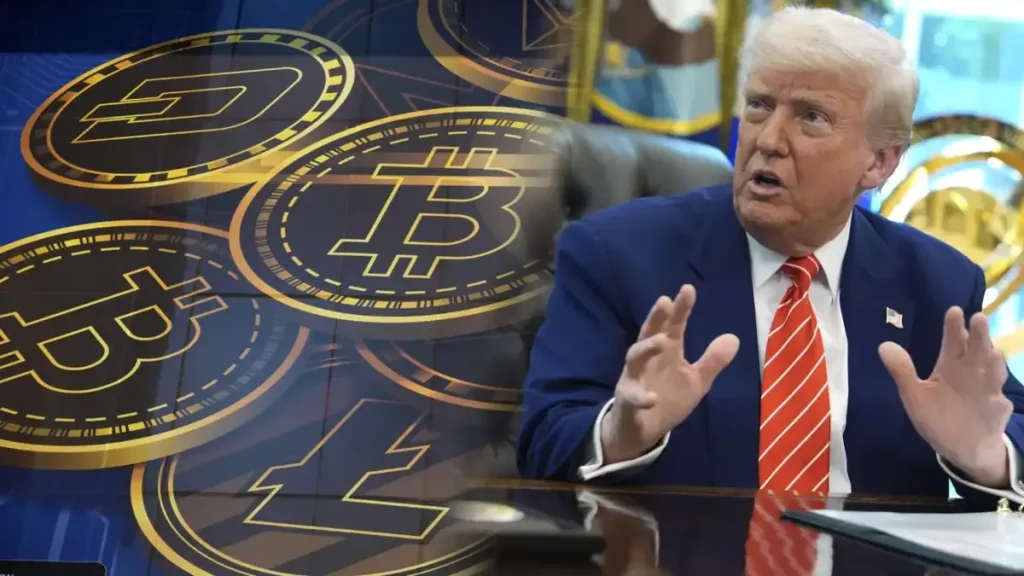In an unexpected turn during what was promoted as “Crypto Week,” the U.S. House of Representatives failed to advance the GENIUS Act, a landmark bill aiming to create the first federal regulatory framework for stablecoins. The procedural vote—intended to bring the legislation to the floor—was defeated on July 15, 2025, by a 196‑223 margin. A bloc of 12 Republicans joined all House Democrats in voting no on the motion, halting progress on the bill and other digital asset measures.
What Is the GENIUS Act?
Short for Guiding and Establishing National Innovation for U.S. Stablecoins Act, the GENIUS Act passed the Senate in June with bipartisan support (68‑30). Introduced by Senator Bill Hagerty (R‑TN), the bill mandates strict backing of stablecoins with liquid assets, monthly reserve disclosures, regular audits, and coordinated federal–state oversight. It’s designed to bring clarity and safety to the $200 billion stablecoin market.
Internal GOP Split Sparks Procedural Defeat
Hardliners Push Bundle Strategy
Tension emerged over the House GOP’s broader legislative strategy. Conservative holdouts, including Representatives like Marjorie Taylor Greene, demanded the GENIUS Act be bundled with two other crypto-related bills—the Digital Asset Market Clarity Act and the Anti‑CBDC Surveillance Act—rather than vote on it separately. They contended that separating the measures could undermine efforts to block Central Bank Digital Currencies (CBDCs) and leave consumer protections unaddressed.
Trump and Speaker Johnson Step In
Following the procedural setback, President Donald Trump took direct action. On July 15, he convened a meeting with 11 of the 12 dissenting House Republicans at the White House, securing commitments to support the bill in a next-day vote. Speaker Mike Johnson, attending via phone, backed the move and pledged to schedule another procedural vote as soon as possible.

News of the failed GENIUS Act vote triggered immediate market reactions: Bitcoin dipped nearly 3 %, while shares of Circle (USDC issuer), Coinbase, and MicroStrategy fell between 1 % and 5 %. However, optimism returned when Trump’s intervention signaled that the bill might still advance.
Crypto advocates argue that stablecoin regulation is vital to bring digital assets into mainstream finance and open avenues for institutional investment. Meanwhile, some Democrats warn that current terms may overlook consumer protections and corporate influence, urging additional anti-corruption measures.
Economic Impact of The GENIUS Act Vote
The bill’s passage would represent a major policy milestone—establishing federal oversight of stablecoins, boosting transparency, and potentially unlocking significant economic activity. Treasury officials project the legislation could enable a stablecoin economy valued in the trillions .
A failure, however, would deepen uncertainty, undermining confidence in U.S. crypto leadership and stalling institutional adoption. With rising concern over Big Tech-issued tokens and national security, a clear regulatory path is becoming vital .
With Trump’s backing and renewed momentum, House leadership is expected to bring the GENIUS Act up for vote in the coming days. The stakes remain high, with internal compromise needed between hardliners and pro-crypto Republicans.
Should amendments (like requiring a CBDC ban or stronger consumer safeguards) be introduced in the House, the Senate may need to reapprove the bill, delaying its progress further. Industry watchers are watching closely to see if Congress will opt for a clear path forward or fall into legislative gridlock.
The GENIUS Act vote has become the focal point of crypto Week, highlighting deep GOP divisions between technological optimism and regulatory caution. Its outcome will shape the trajectory of the U.S. stablecoin market and broader crypto legislation. As lawmakers prepare for a second vote, the industry is holding its breath—hoping that balance between innovation, oversight, and consumer protection can at last be struck.


